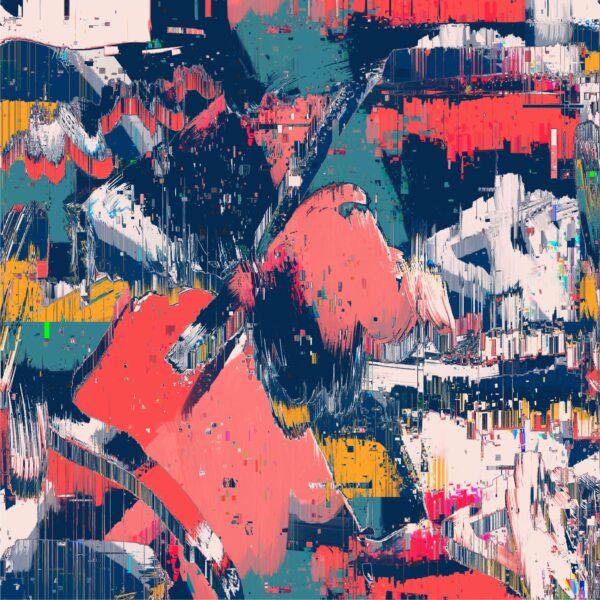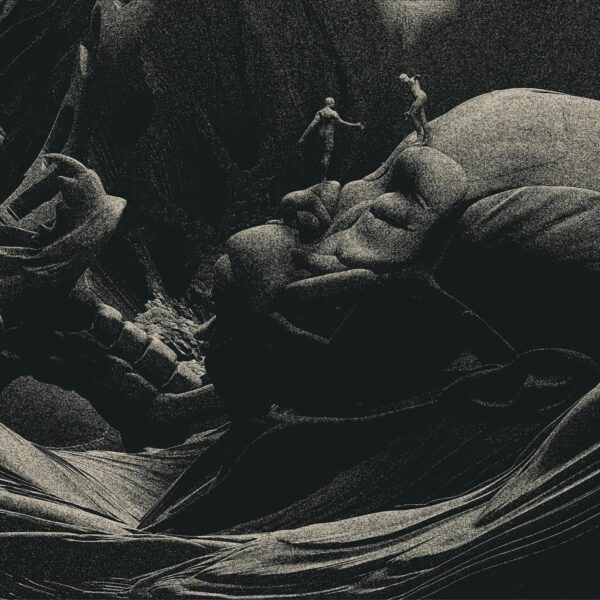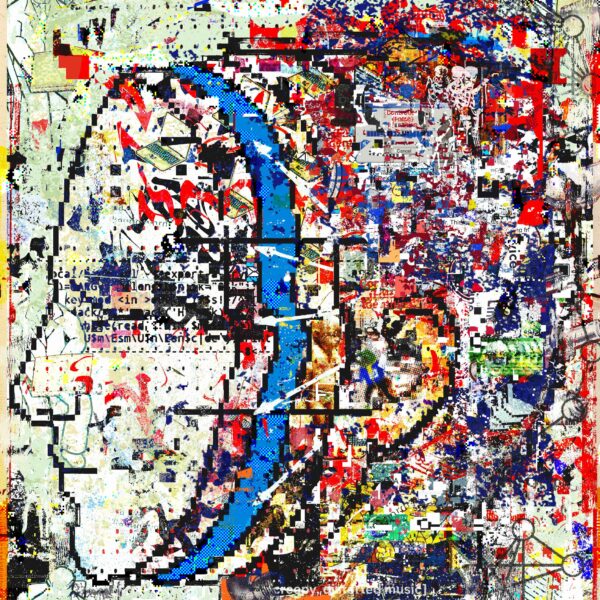Jake Osmun on Creating Degenerative Art
American artist, photographer, and director known for his unorthodox, erratic, bright visuals– Jake Osmun is constantly flipping the script and shaking up the art world. We got the inside scoop on his exclusive new piece for AOTM, DEGENZA.
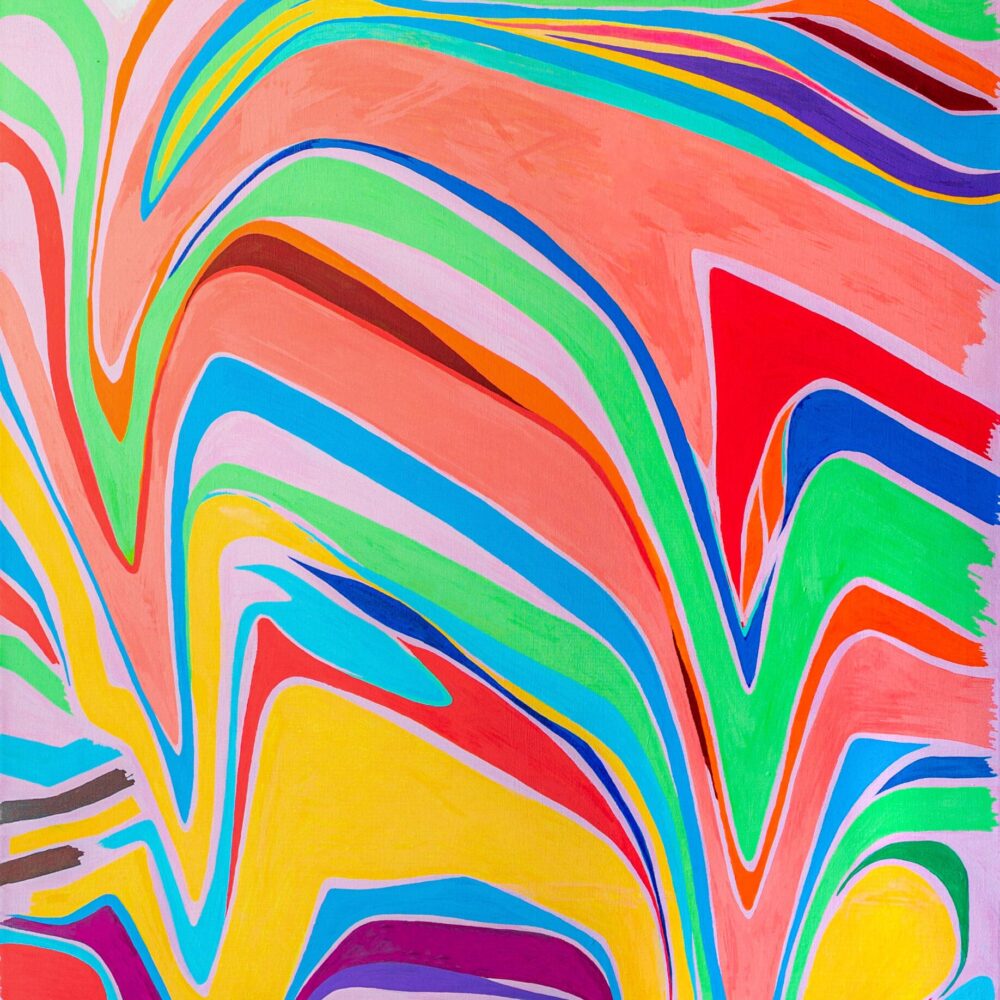
Q: Give us some insight into the process of creating DEGENZA.
Jake: So, I’m not a painter. I mean, Photoshop is– and I’ve lived in Photoshop for my whole life, basically. I took a ‘za that I liked and I melted it and blurred it, threw it into Photoshop. I was thinking, okay, I’m going to smoosh this and Fidenza this together, and then I painted it. It’s just this idea of degenerative art. It’s taken me so long to finish it. Truly it’s just the complete opposite thinking of generative art, basically just taking a Fidenza, glitching and mushing it all together, and then painting it. It’s just a punk commentary on generative art, really a DIY approach.
I think Fidenzas are really culturally important. I think mostly my piece is an exercise as well as a commentary on the different mediums I’ve used. I made this originally in Photoshop and it was pretty cool to begin with. But then– to put that on a canvas– that’s not something that I usually do. To take it from a digital work and then completely flip it on its head and mess with it.
It’s almost a punk approach to Fidenzas. I think it’s just a commentary on the space in general, and also on my personal journey almost as an artist. At the end of the day, I’m really not a painter. I think that it’s tight to be able to make something visually that I’m like, “oh, that’s really cool.” And then take it into the real world and put it onto a painting and hang it on a wall. I think that speaks a lot about just the art world in general.
Q: What first inspired you to make a physical?
Jake: I was inspired by some of the work that was done in the early two thousands. I’d seen some work where people created stuff in Photoshop first and then projected it onto canvas. Once I saw this type of work, everything changed. My whole mindset changed. Transforming these works that are natively digital into physical pieces again. It’s one of my first canvas works that I’m pretty stoked on. I think it looks really cool.
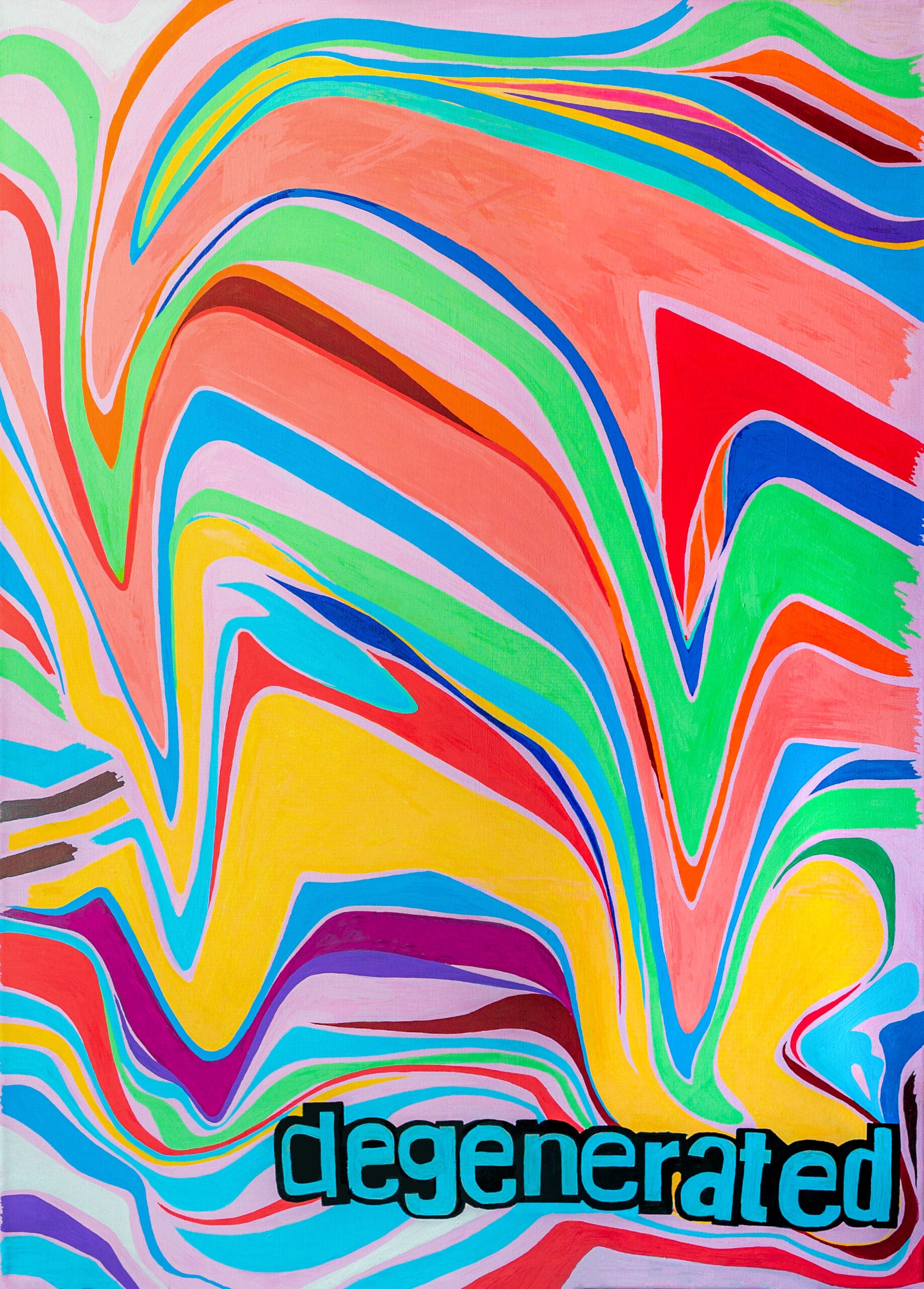
It’s almost a punk approach to Fidenzas. I think it's just a commentary on the space in general, and also on my personal journey as an artist.
Q: Is this a style you plan on spending more time in?
Jake: Yeah, I want to do a lot more. I think that scale changes everything. And specifically for thisI think it’s really cool to just flip it on its head and mess it up. I don’t know how Tyler Hobbs will feel about it. I feel like maybe generative artists who are really honed in on their craft might be like, “that originated from my code.” But I think it’s really, really interesting to take it into a new medium. In terms of my own journey with canvas and painting, it’s something I’m super interested in because scale just changes everything.
Q: Does the physical scale of this piece change your perspective on it?
Jake: Definitely. There will be ideas I’ll have now where I’m like, “Oh, I really want to draw that. That would be really cool.” But it’s either going to be an NFT or go on Instagram or whatever. If you think about it, like oh, what if that were a massive painting, 20 feet long, just ridiculously big– it changes everything for you, as a viewer, too. Some of the things I’ve been wanting to paint are just cards from video games I used to play. I did this one of a Call of Duty gun from an older game– that’s just really nostalgic. As a viewer myself, if I saw that, I would just think it’s funny and provocative and also probably a piece of art. If you’re in the space and know about generative art, I feel like you definitely know what that is referencing. But yeah, I think scale changes everything and this is a step towards that.
Mashing multiple together and being provocative with an idea of degenerative art instead of generative art makes a lot of sense to me.
Q: What do you feel your piece says about generative art?
Jake: Mashing multiple together and being provocative with an idea of degenerative art instead of generative art makes a lot of sense to me. We live in this time where generative art is everywhere, and it’s exciting and it’s cool, but it’s also fun to play with that a little bit and change it and to make it my own style. So that’s to the core, the base. When I saw the original references and thought of the Tyler Hobbs, it just clicked because the attitude of this is kind of not “fuck you,” it is just different and my own take.
I’m also that type of artist who has been playing with processing and wanting to do my own generative art of some kind. So yeah, I think this one is not a complete departure from my previous work, but it’s definitely a departure. The idea and the attitude of where it comes from is definitely a throughline, and I think that shows.
Q: Do you view yourself as a crypto artist?
Jake: I don’t know. I just think I’m an artist. I wouldn’t say I’m a crypto artist, I’d just say I’m an artist that exists in the crypto space, but there’s also plenty of other spaces that I exist in. I’ve read some people’s articles and stuff on unpacking crypto art, and I think it’s important to know and be aware of what it is, but I’m just an artist.
I just think that it’s cool and the culture we live in. At the top of next year, I’m probably going to start streaming a bunch because I watch streamers all the time and I’m like, “What the hell am I watching this guy for right now, I feel like a child.” Truly how a baby just watches someone playing Fortnite. Like, why am I even watching this guy do this? But I realize that like, oh, I could do that too. I mean, I sit at home and draw for a bunch of hours and then play video games, and it’s like people probably just, even if I don’t say anything, people will want to see it, to see me or the process or whatever it is. People definitely want to see the process.
Once it becomes a job and people start telling me what to do, I kind of immediately lose interest.
Q: How do you feel about the term “content creator”?
Ever since I got into this space or just started making art for myself, I try to stray away from having my work categorized as “content” or just being referred to as a “content creator.” It’s just ridiculous whenever someone puts those words on my work. Once it becomes a job and people start telling me what to do, I kind of immediately lose interest. I don’t even think of it as content. It’s just important, and people need to see it. They need to see the process and see an artist doing multiple mediums and messing around multiple things and seeing how they get there. I think it’s super, super important.
I was watching some documentary I was scrolling on the YouTube comments and someone was like, “My teacher used to say all the time: Art is not the end, art is the whole process and making it.” That really inspired me a lot. I’ve actually thought about painting that because I’m like, this is really art basic, I mean that’s like art at its truest form really. The end result is a piece of art, but it’s not art.
